'A lot of fighting': Fossil fuel row breaks out at UN climate summit
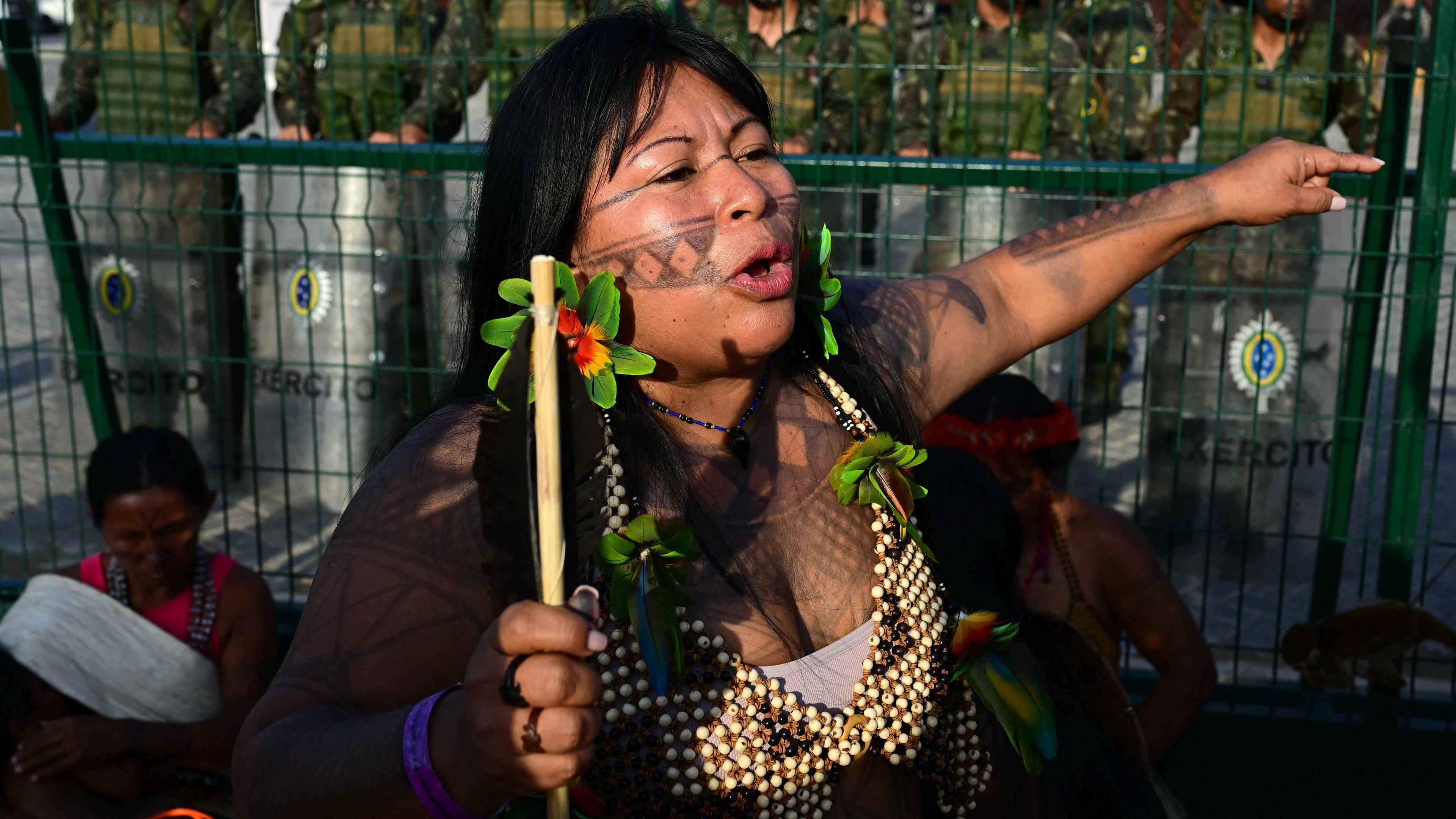
Members of the Ipereg Ayu movement, representing the indigenous Munduruku group, demoonstrated outside this year's summit
- Published
A row over fossil fuels has broken out at the COP30 UN climate talks in Belém, Brazil, as the meeting is meant to be nearing its end.
At the heart of the row is a disagreement over how strong a deal should be on working to reduce the world's use of fossil fuels, whose emissions are by far the largest contributor to climate change.
The dispute pits groups of countries against each other, but all 194 parties must agree in order to pass a deal at the two-week summit.
Representatives and observers from inside a guarded negotiating room say the talks have become very difficult.
One negotiator inside the room told the BBC that there "is a lot of fighting".
Brazil's President Luiz Inácio Lula da Silva and some countries including the UK want the summit to commit nations to stronger, faster action to reduce their use of fossil fuels.
French Environment Minister Monique Barbut said the deal was being blocked by "oil-producing countries - Russia, India, Saudi Arabia, but joined by many emerging countries."
The BBC has approached Saudi Arabia for comment.
Speaking to journalists outside the negotiating room, Secretary of State for Energy Security and Net Zero Ed Miliband said the UK was determined to keep "alive" at the talks a plan to take further action on fossil fuels.
"It's hard, it's sweaty, it's frustrating. There's a big divergence of views," he said.
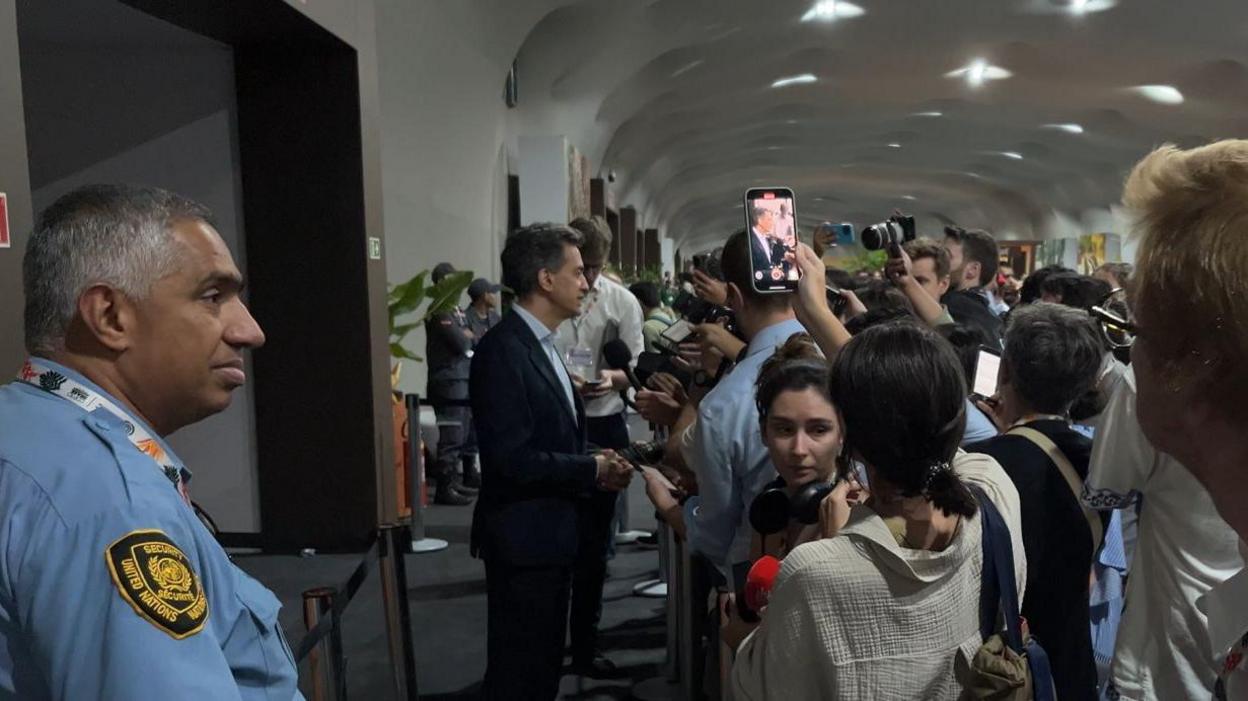
Country representatives are inside a negotiating room with journalists and observers waiting for news outside
"We are determined that one way or another, this innovative idea, with the support of more than 80 countries to have a roadmap to transition away from fossil fuels, is kept alive at this COP," he said.
Mr Miliband added: "I think that in 10-20 years time people will say, "You were the generation that saw the climate crisis around you. Did you take action? Did you rise to the challenge. It's that sense of what will people think of us in the future that keeps me going."
Earlier, a group of countries including the UK published a letter saying they had "deep concern" and rejecting the new draft deal.
Two years ago, COP28 in Dubai committed countries to "transition away from fossil fuels" but did not bind countries to specific actions or timelines.
A group of more than 80 nations want COP30 to create that plan and pass stronger language about moving away from oil, coal and gas.
Ms Barbut suggested that small island nations may agree to a weaker deal on fossil fuels if they secured more finance to adapt to the changes in their countries caused by rising temperatures.
On France's position she said: "At this point, even if we don't have the roadmap, but at least a mention of the fossil fuels, I think we would accept it. But as it stands now, we have nothing left."
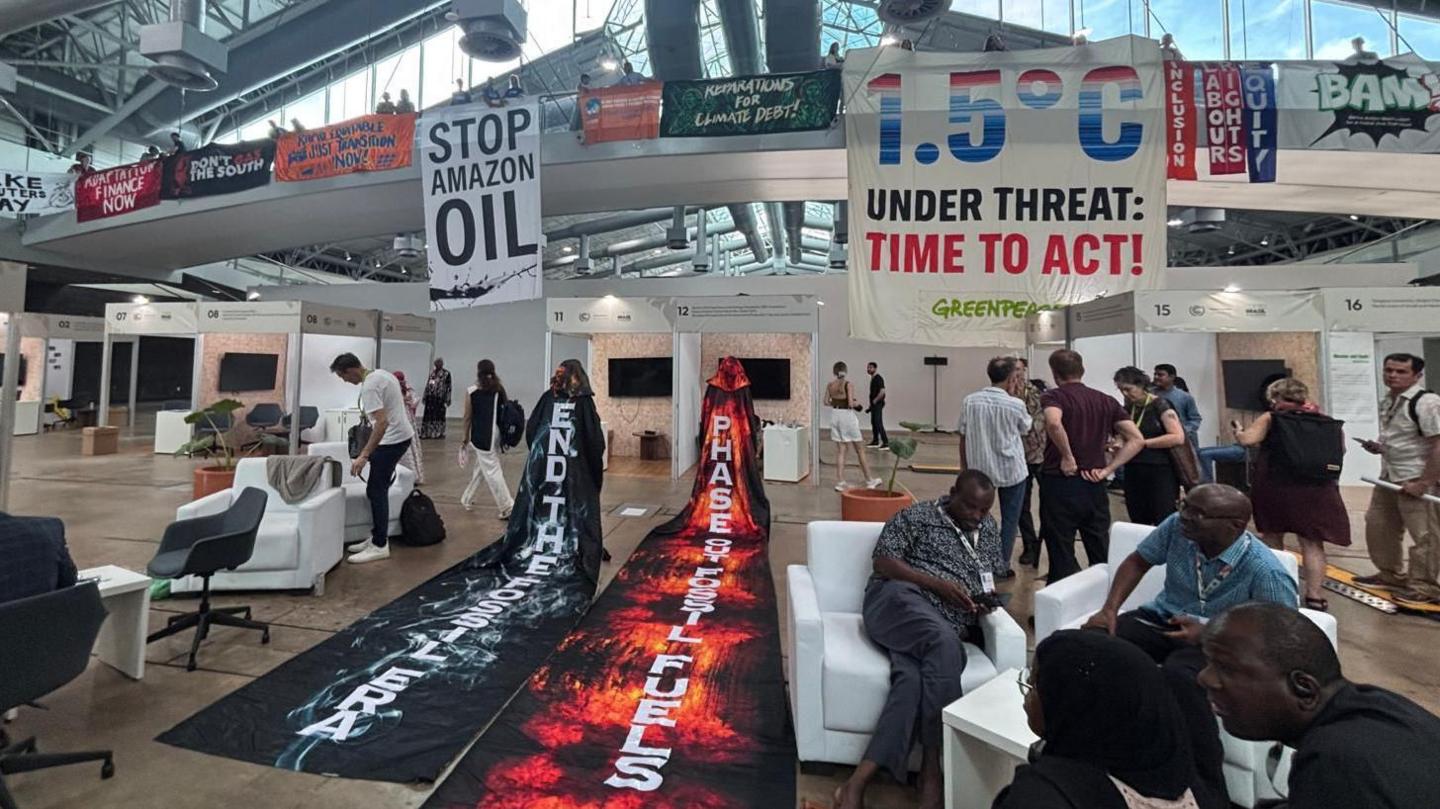
In the hallways, groups of campaigners are chanting "fossil fuels out" and hanging banners saying "Stop Amazon oil" and "1.5C under threat: time to act".
"A good outcome could mean giving us a future and a present that it is worth fighting for," International Youth Climate Movement campaigner Shurabe Mercado, from Mexico told BBC News.
"Our generation is most at risk and we are most at stake."
The meeting is a fraught and delicate diplomatic process as countries jostle to protect their national interests, while also attempting to address the issue of climate change.
Some observers question the value of the complex, legalistic talks which almost always over-run.
But others point to the significant advances in measures to tackle climate change, including renewable energy, electric vehicles, and protection of nature in recent years linked to COP agreements.
What is COP30 and why does it matter for climate change?
- Published7 November
Other issues discussed at the COP include the gap in climate finance promised by richer nations to developing nations that are most impacted by climate change.
The new draft deal called for global efforts to triple financing available to countries by 2030.
But it did not say if this should come from richer nations or from other sources, like the private sector.
This could anger poorer countries who want stronger support from richer nations and heavily criticised a deal at last year's COP29 in Baku, Azerbaijan, which they considered paltry.
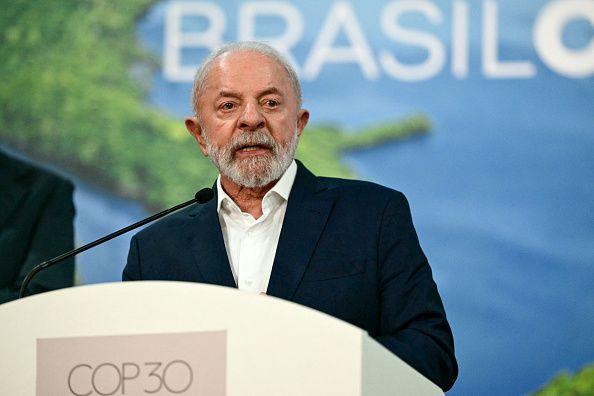
Brazil's President Luiz Inácio Lula da Silva, wants the summit to commit countries to stronger, faster action to reduce their use of fossil fuels
Deforestation has also been been a fraught issue, which takes place on the edge of the Brazilian Amazon.
The new draft deal weakened previous language around tackling deforestation.
"The wildlife and indigenous people who call the forest their home deserve better than this," said Kelly Dent, Director of External Engagement for World Animal Protection.
The two-week meeting has been interrupted by two evacuations.
Last week a group of protesters broke into the COP venue in Belém carrying signs reading "Our forests are not for sale".
On Thursday a fire broke out, burning a hole through the sheeting covering the venue and causing 13 smoke inhalation injuries. The summit was evacuated and closed for at least six hours.
The summit has been praised for including the largest number yet of delegates from indigenous groups.
- Published10 November
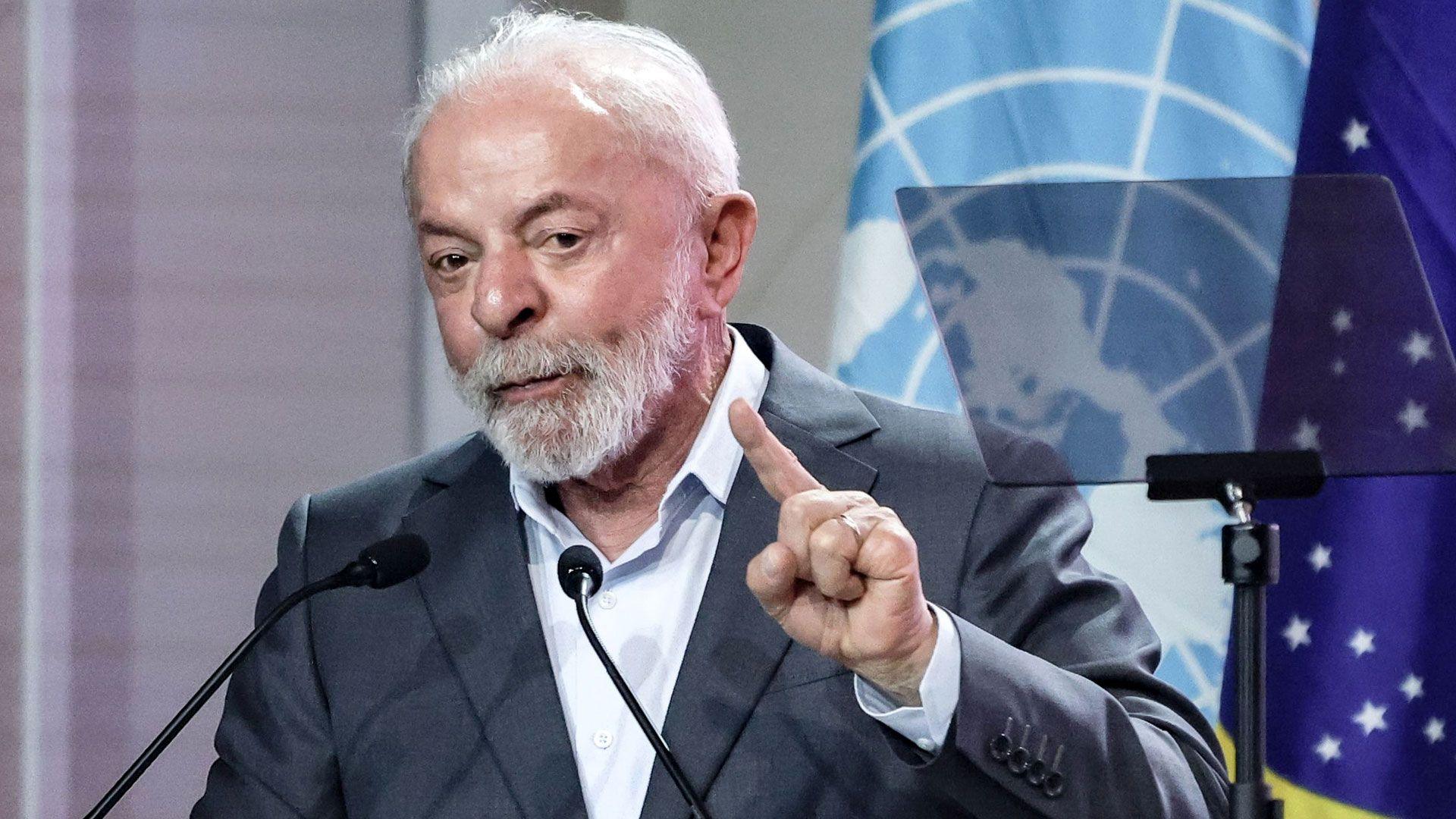
- Published5 days ago
